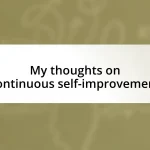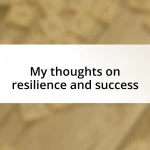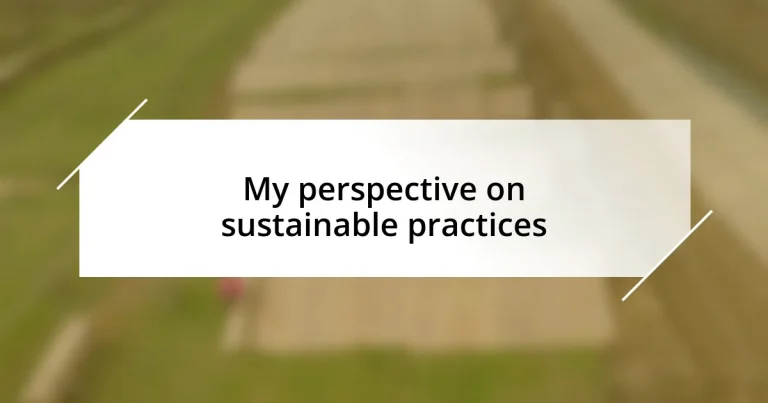Key takeaways:
- Sustainable practices are essential for meeting current needs without compromising future generations, encompassing individual and community efforts.
- Key sustainable practices include reducing waste, supporting local businesses, conserving energy and water, and mindful consumption.
- Implementing sustainability at home can lead to positive impacts, such as using LED bulbs and eco-friendly cleaning supplies.
- Community involvement, such as organizing cleanup events and local farmers’ markets, fosters collective responsibility and strengthens local ties towards sustainability.
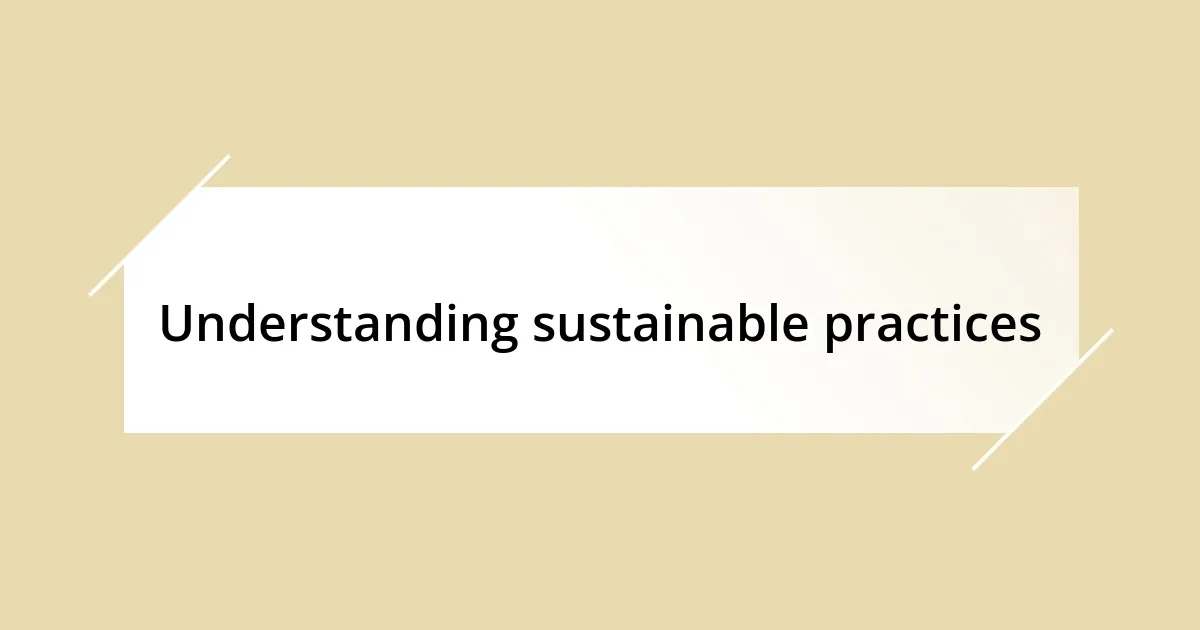
Understanding sustainable practices
Sustainable practices are all about finding ways to meet our needs without compromising the ability of future generations to meet theirs. I remember the first time I truly grasped this concept while volunteering at a local community garden. Watching how the gardeners used recycled materials and organic methods opened my eyes to real-life examples of sustainability in action.
It’s fascinating how sustainable practices can touch nearly every aspect of our lives, from the food we eat to the clothes we wear. I often find myself questioning the environmental impact of my daily choices – do I really need that new shirt, or could I find something second-hand? Each decision, big or small, contributes to a larger picture, and understanding this can be remarkably empowering.
Sustainability also goes beyond just individual actions; it involves community efforts and systemic changes. Engaging in discussions about these issues often brings out a mix of hope and frustration in me. For instance, when I see my neighbors rallying for better recycling programs, I feel a renewed sense of purpose. Don’t you think it’s inspiring how collective action can lead to meaningful change?
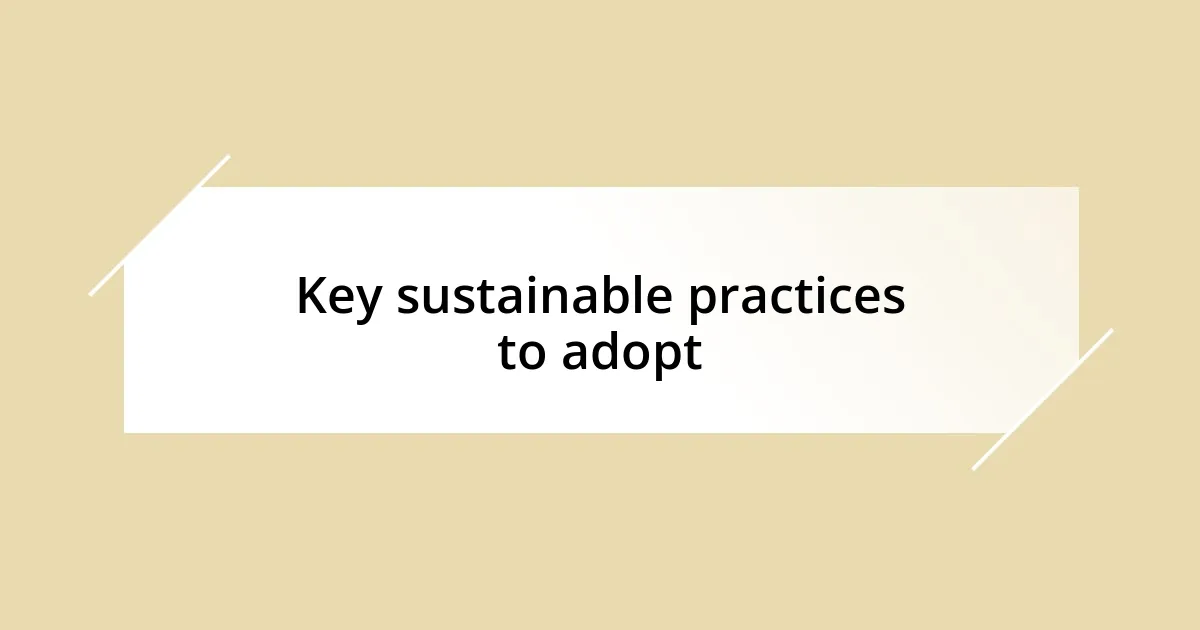
Key sustainable practices to adopt
Adopting sustainable practices can feel like a personal journey. I remember when I first started composting; it wasn’t just about reducing waste but also witnessing the transformation of scraps into nutrient-rich soil. It sparked a genuine interest in my garden. I loved seeing how my little compost pile became a haven for worms and beneficial microbes, all contributing to a vibrant ecosystem right in my backyard.
Here are some key sustainable practices to integrate into your life:
- Reduce, Reuse, Recycle: Prioritize minimization of waste by repairing items instead of replacing them and opting for reusable bags and bottles.
- Support Local: Choose to buy from local farmers and businesses to minimize carbon footprints and bolster your community’s economy.
- Energy Efficiency: Invest in energy-efficient appliances and consider renewable energy options like solar panels to reduce your carbon footprint.
- Conserve Water: Incorporate water-saving fixtures and practices, like collecting rainwater or opting for drought-resistant plants in your garden.
- Mindful Consumption: Reflect on your purchases. I often ask myself, “Is this necessary?” or “How long will I use it?” before committing to buying anything new.
In my experience, these small shifts not only contribute to a healthier planet but also cultivate a deeper appreciation for what we have. It’s an enlightening process that invites us to connect more thoughtfully with our environment.
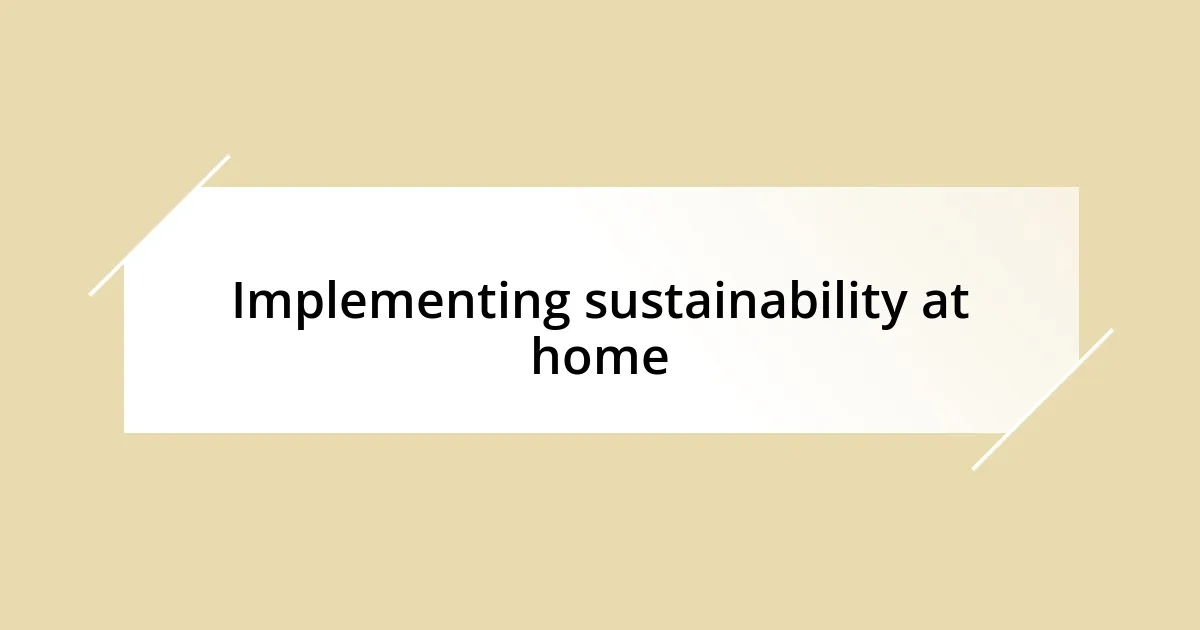
Implementing sustainability at home
Implementing sustainability at home doesn’t have to be overwhelming; it can be a rewarding endeavor. I vividly recall the moment I replaced all my conventional light bulbs with LED ones. The immediate change in my energy bill felt like a small victory, but the real triumph was realizing how easy it was to make a positive impact without disrupting my daily routine.
One of my favorite sustainable practices is creating a small herb garden in my kitchen. It started with a few pots on the windowsill, and over time, it’s blossomed into a lush green corner. Not only does it provide me with fresh herbs for cooking, but tending to it has become a therapeutic escape from the bustle of daily life. Can you imagine the satisfaction of snipping fresh basil for your pasta right at home?
The transition to sustainable practices also includes mindful choices about products. I remember being thrilled when I discovered eco-friendly cleaning supplies, which made me feel good about maintaining a clean home without the harsh chemicals. This shift has not only helped the environment but also led me to understand the importance of what I bring into my space. It’s moments like these that underscore how a commitment to sustainability can enrich our lives.
| Practice | Benefits |
|---|---|
| LED Light Bulbs | Reduce energy consumption and lower electricity bills |
| Herb Gardening | Provides fresh ingredients and adds beauty to your home |
| Eco-Friendly Cleaning Supplies | Minimizes harmful chemicals while promoting a healthier living environment |
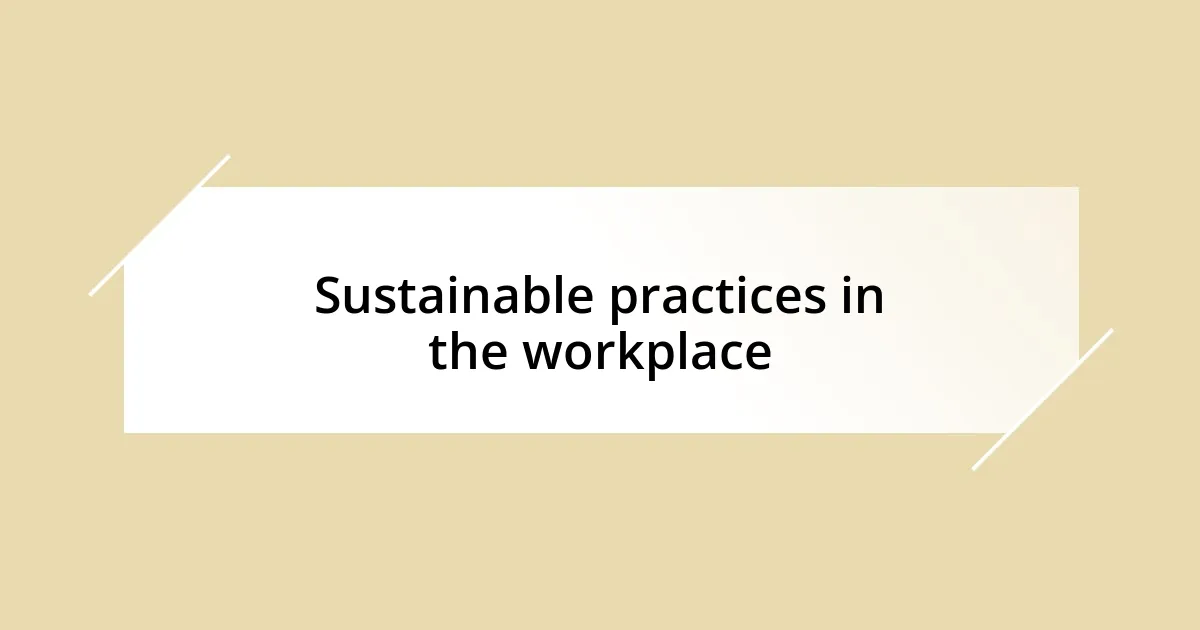
Sustainable practices in the workplace
Sustainable practices in the workplace can transform not just the environment but also the office culture. I’ve noticed that when a company encourages recycling, employees feel a stronger sense of responsibility. It creates a ripple effect—when you see your colleagues caring about their impact, it inspires you to do the same.
Taking small steps like implementing a digital-first approach can significantly cut down on paper waste. I remember when my office transitioned to online reports instead of printed ones. The effort was minimal, yet the reduction in clutter was astounding, and it felt as if we had freed up space—not just on our desks but in our minds, too. Have you ever considered how reducing paper could improve not only sustainability but also productivity in your workplace?
Utilizing energy-efficient technology is another impactful practice. One afternoon, I plugged my laptop into a smart power strip that turned off when I wasn’t using it. It felt like a simple tweak, yet it brought an unexpected sense of accomplishment knowing I was conserving energy without extra effort. Why not explore ways like this to incorporate sustainable choices into your work routine? Small changes can lead to significant advantages for both you and the planet.
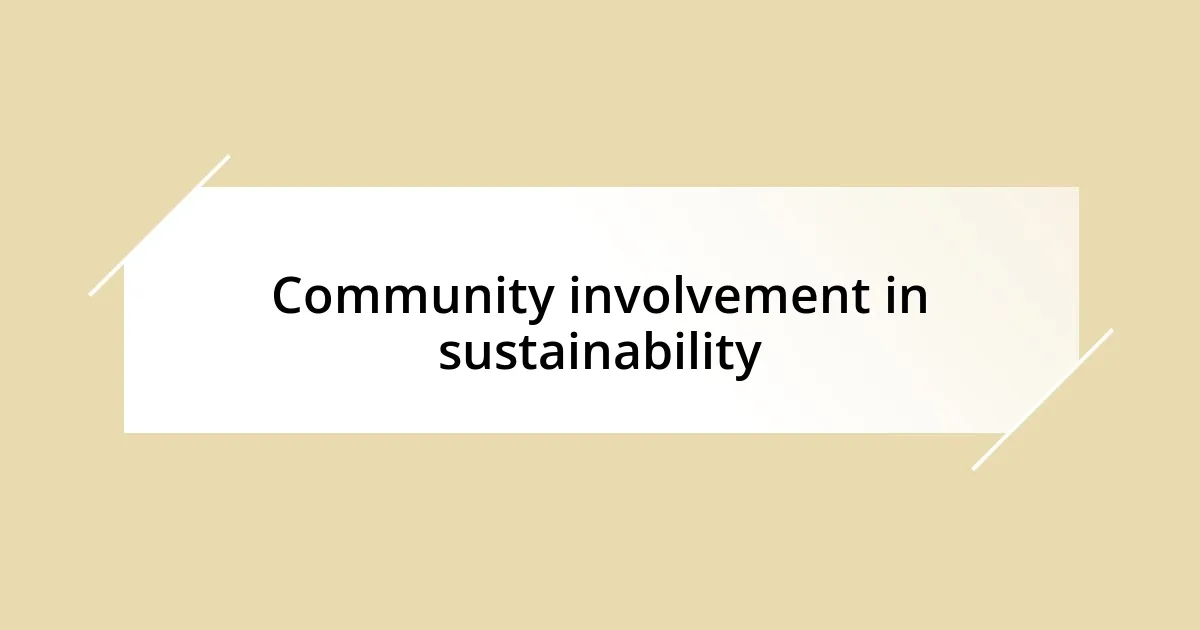
Community involvement in sustainability
Community involvement is a cornerstone of sustainability, and I’ve seen this firsthand in my neighborhood. When we organized a community cleanup day, it didn’t just bring together locals; it fostered a sense of camaraderie that transformed our relationship with our environment. Have you ever felt that buzz of collective purpose? It’s invigorating to know you’re part of something larger than yourself, working side by side with neighbors toward a common goal.
I also recall the joy of participating in a local farmers’ market initiative. It wasn’t just about buying fresh produce; it was about supporting local growers and creating a sustainable food source. Watching families come together, sharing recipes and stories amidst the vibrant stalls filled me with pride. Connecting with the community like this not only nurtures relationships but also deepens our commitment to local, sustainable practices. Isn’t it wonderful how these interactions can remind us of what truly matters?
Educational workshops have further enriched my community involvement in sustainability. I remember attending a session on composting, which opened my eyes to the potential of waste reduction. Sharing knowledge with neighbors who felt just as passionate was inspiring, and soon after, we set up a neighborhood composting program. This initiative not only reduced our trash but also cultivated a shared sense of responsibility. How can we harness our collective knowledge for a greener tomorrow? I believe that together, we can drive meaningful change.



